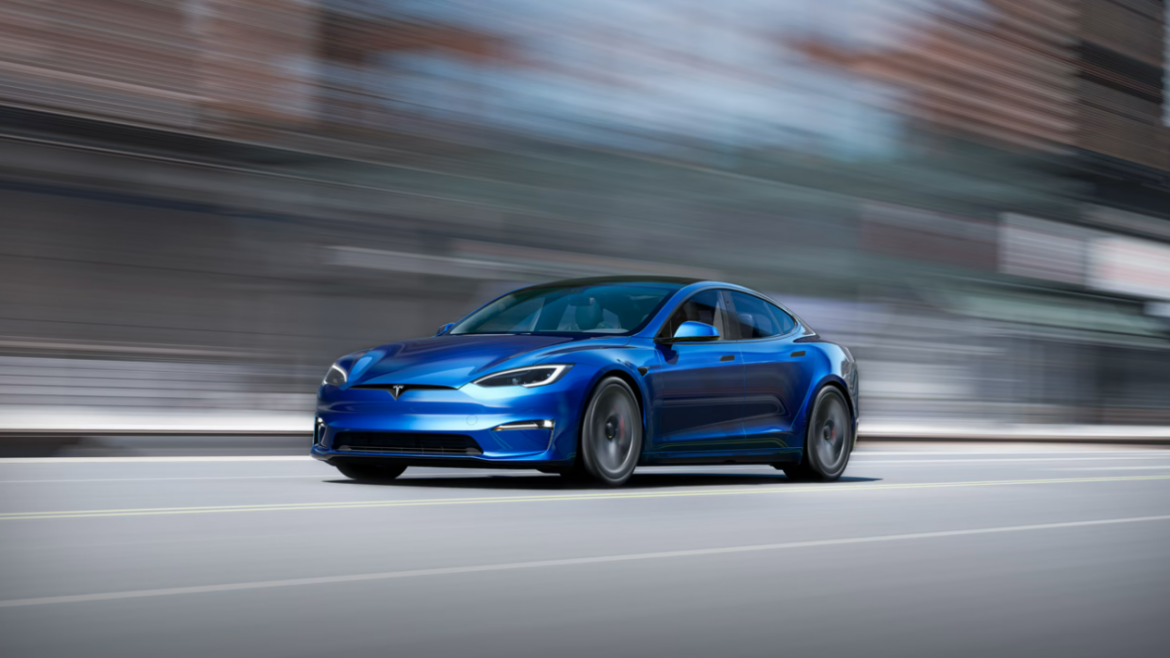In the ever-evolving automotive world, few companies have stirred as much excitement and innovation as Tesla. Under the leadership of Elon Musk, Tesla has redefined the electric vehicle (EV) landscape, often shunning traditional paths to carve its niche. However, as the company navigates the complexities of market saturation and consumer preferences, an intriguing proposition emerges from an open letter in Haig Partners’ Q1 Report: Could partnering with traditional dealerships provide Tesla with the boost it needs for sustained growth?
The changing dynamics of the automotive industry
The automotive industry has witnessed significant transformations over the past decade. The shift towards electric vehicles, driven by environmental concerns and technological advancements, has spurred fierce competition among manufacturers. Tesla, a frontrunner in this revolution, has enjoyed immense success, with its cars leading in various segments and boasting high customer loyalty. Despite this, recent trends indicate challenges that could hamper Tesla’s growth trajectory.
According to Haig Partners, Tesla’s strategy of bypassing traditional dealerships might be reaching its limits. The firm notes that Tesla’s sales are declining, even after significant price reductions, and inventory levels are increasing. This scenario raises a critical question: Is it time for Tesla to reconsider its sales model?
The case for dealership partnerships
Haig Partners’ open letter outlines several compelling reasons for Tesla to explore partnerships with dealerships. These points are rooted in enhancing customer experience, improving service, and optimising financials. Here’s a closer look at why this shift might be beneficial for Tesla:
1. Enhanced buying experience
Early adopters of electric vehicles, many of whom were tech-savvy and environmentally conscious, embraced Tesla’s direct sales model. However, as the market expands to include mainstream consumers, the need for a traditional buying experience becomes more evident. Many new buyers prefer to physically interact with vehicles, receive in-person explanations of features, and take test drives before making a purchase. Dealerships can offer these personalised services, including assistance with trade-ins, financing, and insurance, which can be challenging to navigate online, especially for those with less-than-perfect credit.
2. Improved service accessibility
Service accessibility remains a significant pain point for many Tesla owners. With only 200 service centres, compared to over 1,000 centres for brands with similar sales volumes, Tesla customers often face long waits and distant service locations. Partnering with dealerships could dramatically increase the number of service centres, making it more convenient for customers and potentially boosting sales. Additionally, improved service accessibility could enhance customer satisfaction and loyalty, leading to higher profitability from parts and service sales.
3. Higher margins and reduced capital investment
One of the key insights from the open letter is the potential for higher margins through dealership partnerships. Carl Sewell, an industry legend, demonstrated that price isn’t always the top criterion for buyers; other benefits, such as service and convenience, play crucial roles. Dealerships could help Tesla maintain fair pricing while providing added value to customers. Furthermore, establishing a dealer network would require minimal capital investment from Tesla, as dealers would bear the costs of facilities, labour, and advertising. This arrangement could free up significant capital for Tesla to invest in research and development, driving innovation in new products.
4. Facilitating full self-driving and robo-taxi networks
Tesla’s ambitious plans for full self-driving cars and a robo-taxi network hinge on extensive, reliable service infrastructure. A widespread dealership network could provide the necessary support for these initiatives, ensuring that autonomous vehicles are serviced and maintained across diverse markets. This would be essential for the scalability and success of Tesla’s autonomous driving ambitions.
Industry insights and comparisons
While the proposal from Haig Partners is thought-provoking, it’s essential to consider industry trends and insights. According to data from the National Automobile Dealers Association (NADA), dealerships continue to play a crucial role in the automotive ecosystem. They provide valuable customer interactions, facilitate financing, and offer extensive service networks. Moreover, traditional automakers like Toyota have thrived by leveraging strong dealer networks, underscoring the potential benefits for Tesla.
However, it’s also important to recognise the challenges. Tesla’s brand identity is closely tied to its unique sales model, which eliminates the dealership mark-up and offers a seamless, direct-to-consumer experience. Transitioning to a dealership model could dilute this brand identity and alienate loyal customers who value the current approach.
Financial and market implications
From a financial perspective, partnering with dealerships could help Tesla address immediate challenges such as inventory management and service accessibility. According to the Haig Partners report, Tesla currently has nearly 160,000 units in inventory, representing over $8 billion in tied-up capital. By utilising a dealership network, Tesla could shift this inventory burden, improving cash flow and reducing financial strain.
Furthermore, a dealer network could enhance Tesla’s market reach, especially in regions where traditional car-buying habits prevail. This expansion could be critical in maintaining Tesla’s competitive edge as other automakers, including legacy brands and new entrants from China, intensify their efforts in the EV market.
The road ahead for Tesla
Elon Musk’s leadership has propelled Tesla to remarkable heights, but the road ahead requires strategic adaptation. The automotive landscape is dynamic, and consumer preferences are evolving. While Tesla’s direct sales model has been revolutionary, integrating a dealership network could offer significant advantages, from enhanced customer experiences to financial optimisation.
Haig Partners’ proposal offers a nuanced perspective on Tesla’s growth strategy. It challenges the status quo and invites Tesla to explore new avenues for sustaining its market leadership. By balancing its innovative spirit with pragmatic partnerships, Tesla could continue to redefine the automotive industry while addressing emerging challenges. The decision ultimately lies with Elon Musk and his vision for Tesla’s future, but the potential benefits of embracing dealerships merit careful consideration.



